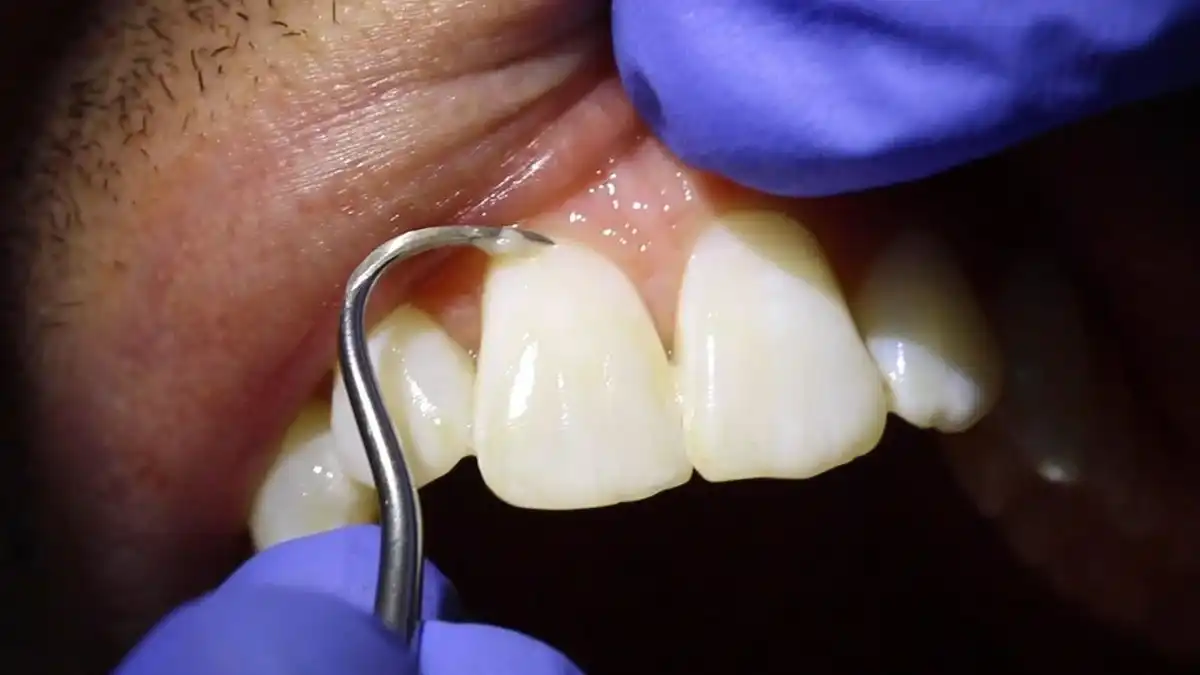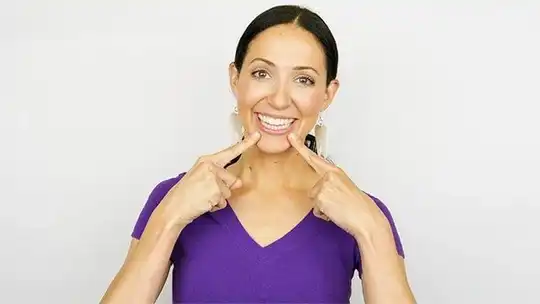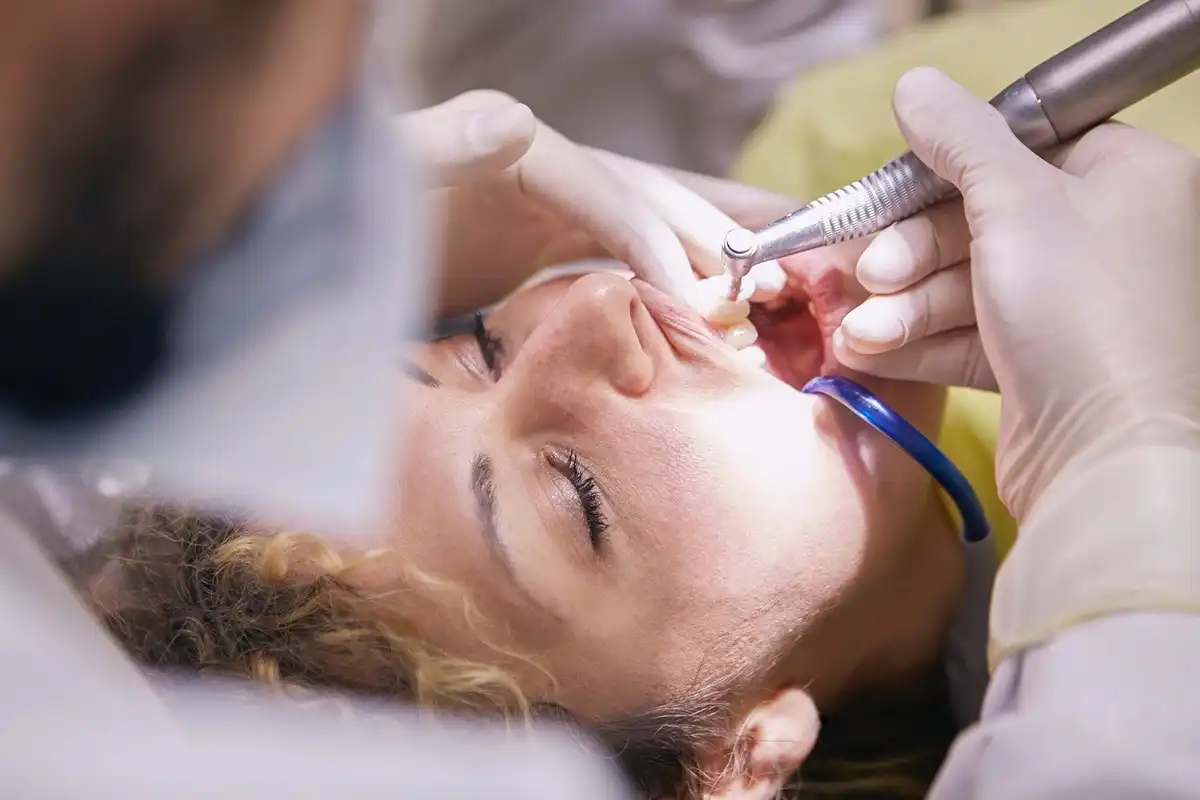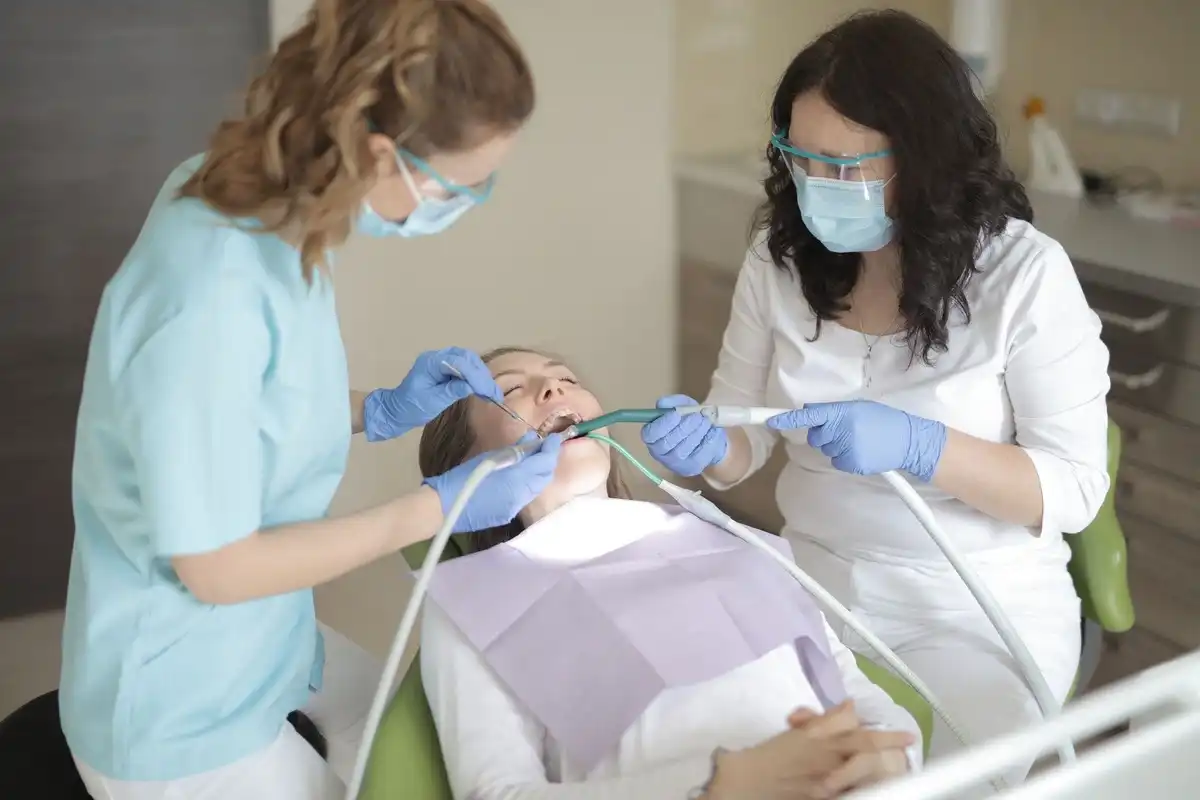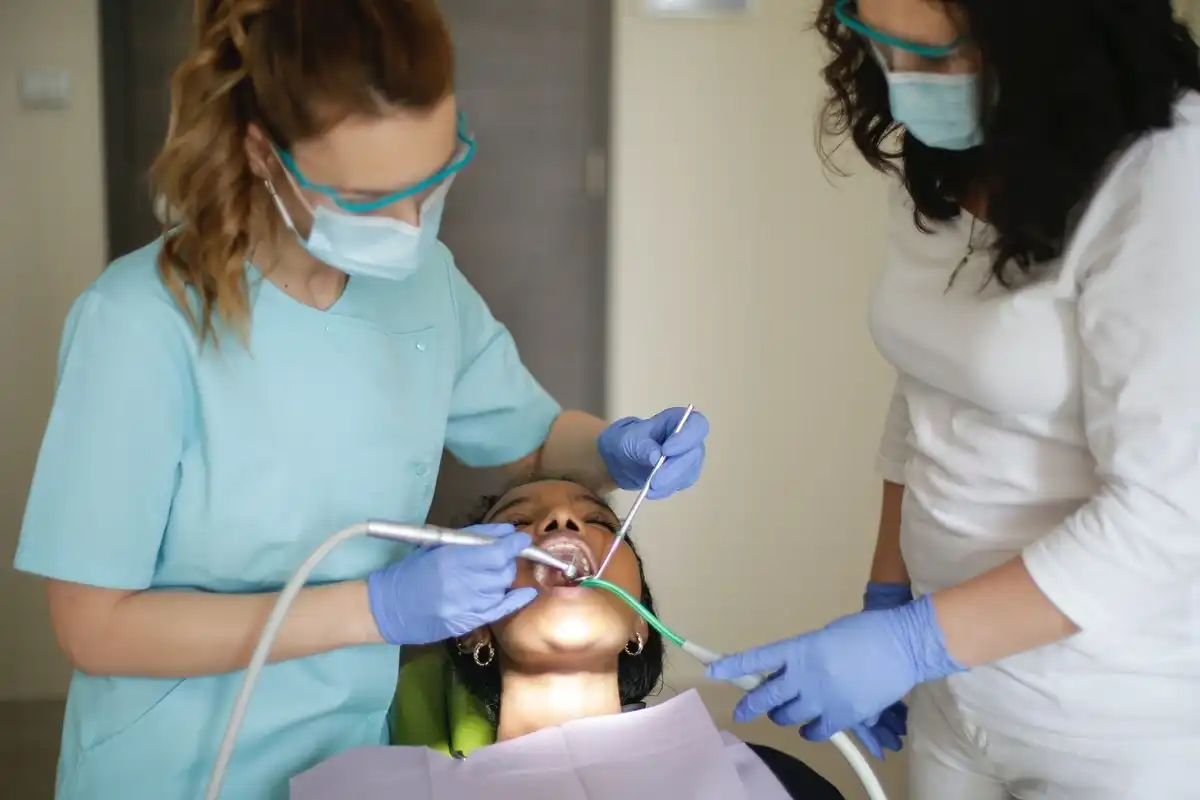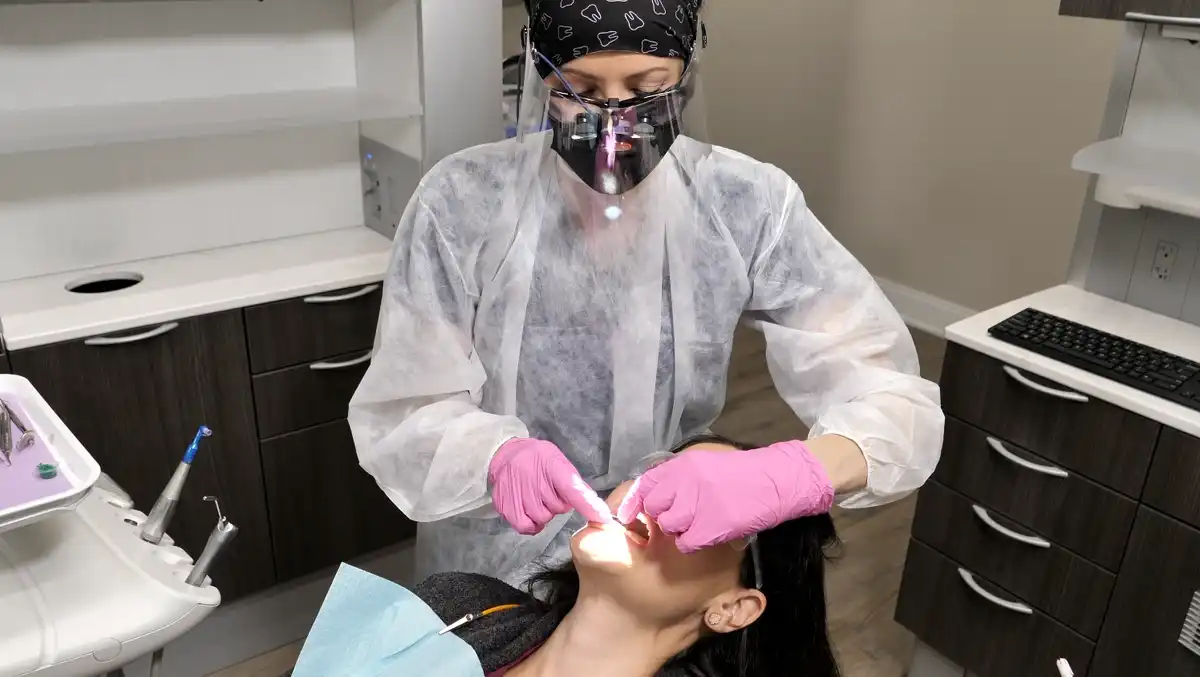Nursing vs. Dental Hygiene | Career Comparison


Registered Dental Hygienists (RDHs) and Registered Nurses (RNs) have a lot in common. They both require many of the same science prerequisite courses, and both degrees can be completed at either the 2-year or 4-year college level. Both jobs involve patient care and overall knowledge of health, pharmacology, and pathology. But that’s about where the similarities end.
If you’re trying to decide whether you want to apply to nursing or dental hygiene school, you’re not alone. A lot of people consider both career paths; some even switch careers entirely after working for several years to jump into the other industry.
Dental Hygienist vs Nursing Careers
Deciding between nursing vs. dental hygiene is a tough choice, but if you start making a list of the pros and cons of each, it will be easier to pick one over the other.
Medicine and dentistry are two entirely different animals. Yes, the mouth is connected to the body, but dental and medical care systems and even insurance programs are separate and apart from one another.
Both nursing and dental hygienist's roles are extremely important when it comes to the overall health and well-being of the public. With dental care, we directly impact oral functions like speech, diet, and self-esteem. In medicine, healthcare providers may provide care to unique populations or for specific disorders, such as pediatrics, endocrinology, emergency medicine, etc.
While nursing vs. dental hygiene training is similar, the career paths and work schedules are not. Hygienists typically work in smaller practices from 8-5, Monday-Friday. Registered nurses may work 12-hour overnight shifts or in large hospital systems. Both are rewarding in that you can provide care to others, but the work environments are usually nothing alike.
Most notably, I think, is that registered nurses may choose to further their careers in clinical care if they so choose. For example, they may decide to become a registered nurse practitioner in family care, obstetrics, psychiatry, etc. Hygienists—except for in a couple of states—do not have that option.
Skills and Qualities
Full warning: I will be pretty generic and stereotype both registered nurses and dental hygienists here for a minute.
Depending on which field of nursing you’re in, you’re likely going to confront a lot more bodily fluids than a dental hygienist will. You’re also going to be confronted with medically fragile situations where someone’s life is on the line. Are your stomach and emotions strong enough to handle it?
Then again, some people are completely repulsed at the idea of putting their gloved hands into someone’s mouth. The idea of cleaning someone’s teeth all day long may bore them entirely.
At a certain point, your gut will tell you which one you’d rather do.
Nurse Skills and Qualities
What kind of personal characteristics do you need to have to make a great registered nurse? Here are some of the most important ones:
1. Communication Skills
As information gatherers, nurses must be excellent communicators, not just with their patients but also their peers and supervising physicians. Not only are you caring for your patient but also providing emotional support. One detail left out could be detrimental to the patient.
2. Critical Thinking Skills
A lot of what goes into nursing also boils down to addressing symptoms and nailing down diagnoses. While it is the doctor that does the diagnosing, nurses still help identify red flags and support the medical team in pinpointing likely causes.
3. Attention to Detail
Nurses need to constantly think about the whole patient and/or how specific health concerns tie back to systemic wellness. Including how pharmacotherapeutic agents affect the patient’s health. There is zero room for error. One mistake could be life-threatening, depending on what it is.
Dental Hygienist Skills and Qualities
While it’s not always the case, hygienists tend to work with their hands on patients a whole lot more than registered nurses do (depending on the field of care they work in, of course.) Every hygienist will need to be great at:
1. Dexterity
Dental hygienists have to be great with their hands; it’s really not an option. With basic dental care, we work with small, sharp tools, our dexterity needs to be spot-on.
2. Communication Skills
You’ll need to be comfortable with patient education, explaining treatment plans, and sharing your findings with the supervising dentist. Part of being a great communicator is also being a good listener because a lot of patients just want to feel heard. Dental hygienists work closely with the dentist in treating oral diseases and independently conduct oral examinations.
3. Attention to Detail
Dental hygienists also consider whole-patient health but from a more focused standpoint as clues relate to oral symptoms and conditions. Action plans for maintaining good oral health are all individual cases. They must be extremely detail oriented in care practices, oral care planning, and reviewing medical histories.
Education Requirements
Surprise! Getting into nursing vs. dental hygiene school is more alike than it isn’t. Most programs have prerequisites like:
- Microbiology
- Chemistry
- Anatomy & Physiology
- Algebra
Truth be told, you can probably take a lot of the same classes and apply to both nursing and hygiene schools, then see which one you get into. Just remember that the specific school you’re applying to may include a couple of different prerequisite classes, so be sure to plan ahead.
Both nursing and dental hygiene programs offer two-year associate degree programs, as well as four-year bachelor’s degree programs, depending on your choice of educational institution.
Registered Nurse Requirements
Depending on which area of patient care you choose to go into, duties and responsibilities may include anything from providing health screenings and gathering information to administering medications to placing IV lines or catheters. You will receive hands-on training to perform multiple medical tasks and will pass competency exams to show you’re able to do those types of clinical duties.
Once you graduate from nursing school and pass the NCLEX-RN exam and obtain a registered nurse license, you can pretty much go into any area of medicine that you want to specialize in, if you want to specialize at all. Maybe you’re happy working at a hospital or in family medicine, or maybe you want to get extra experience working in NICU, ICU, or something that requires a more advanced skillset.
Registered Dental Hygienist Requirements
Once you’re in the field, you’ll provide preventative patient care and/or periodontal therapy in a direct care environment. You’ll also be responsible for patient education, health screenings, and care planning. You can take your license with you anywhere in the state and get a job, as there are no “specializations” you’ll need to be qualified for one type of office vs. another.
Related: Dental Hygienist School Requirements
Work Environment
Once you get out into the “real world” and begin your career, working in nursing vs. dental hygiene is really nothing alike. Hygienists don’t work holidays, overnight, or even 12-hour shifts. They work in a smaller office environment. Even larger dental clinics only have so many hygienists or dentists working in them, so it’s nothing like a hospital.
On the flip side, nurses may work late hours, have a harder time getting holidays and weekends off, and spend a lot of time on their feet.
Both careers, however, do have one thing in common: bloodborne pathogens! You’ll be around potentially contaminated bodily fluids at all times, so be sure your PPE (personal protective equipment) game is on point!
Nurse Work Environment
While this isn’t a comprehensive list, some of the different places registered nurses work include settings like:
Hospitals—From emergency rooms to NICU, every department in the hospital is well-staffed with nurses!
Schools—Remember your school nurse? Want to work school hours and have the summer off? You’re in luck!
Nursing Homes—Nurses may provide clinical or supervisory roles in long-term care facilities.
Clinics—Private physicians offices, private health clinics, and specialty medical offices.
Management—Nurses with heavy experience and upper-level degrees may choose to take on leadership roles.
Education—Working at a college, university, or in research.
Dental Hygienist Work Environment
Most dental hygienists will work in one of the following areas:
Dental Offices—Most dental hygienists work in private dental offices or corporately owned dental clinics.
Public Health Clinics—These clinics provide community dental health care to underserved populations.
Hospitals—Occasionally, hygienists will have the ability to work at a hospital to provide care to admitted patients.
Mobile Clinics—A mobile dental clinic usually travels to schools, nursing homes, or underserved areas to bring care directly to patients.
Training or Sales—Hygienists with clinical experience may choose to work in peer-facing roles to help train new staff or work with product manufacturers.
Research—Conducting clinical trials and working with experts to draft scientific reports.
Oral Health Education—Working as a clinical supervisor or professor at a dental hygiene school.
Career Advancement Opportunities
Unfortunately, in most of the United States, nursing vs. dental hygiene are polar opposites when it comes to career advancement. Nurses with bachelor’s degrees can go back to school to earn a master’s degree and become mid-level care practitioners. That means more responsibilities, more patient involvement, and more pay. The majority of dental hygienists will never have that opportunity, except for in a couple of states where “dental therapists” or “advanced dental hygiene practitioners” are being introduced to bridge the access to care gap. Fun fact: dental therapists have been around for years in places like Australia and Canada.
All that being said, there are still other types of opportunities for advancement.
Nurse Advancement Opportunities
When you compare nursing vs. dental hygiene, nurses do have more opportunities for specialization and advancement. By working in specific fields, you can find what you’re most interested in and then go on to specialize in that area.
1. Specializations
If you want to specialize as a nurse, you can choose to work in specific clinics or go back to school for a higher-level degree. Hand’s-on clinical experience in specific areas of patient care will help you fine-tune your skills before taking the next steps in career advancement. You may even want to go into healthcare administration or education!
2. Advanced Degrees
You’ll never have trouble finding BSN completion programs or BSN to MSN degrees online. Depending on which area you want to specialize in—especially if you want to become an advanced nurse practitioner—you’ll have to enroll in a specific program designed for that field. There are even Doctor of Nurse Practitioner (DNP) degrees now beyond the traditional MSN.
Dental Hygienist Advancement Opportunities
Even though mid-level dental practitioners aren’t the norm in the United States, there are still great options out there for hygienists who want to further their careers. For example, you might want to go into research, academia, sales, or marketing.
1. Continuing Education
Choose between completing a master’s degree in dental hygiene or adding onto your RDH degree with a non-dental degree, depending on which field you’d like to go into.
If you have an associate degree in dental hygiene, there are several online bachelor of dental hygiene degree completion programs to choose from. Or you may want to get a 4-year degree in something else, using your hygiene classes to complete the elective requirements.
2. Specializations
Some dental hygienists get specialized training in areas like public health, laser dentistry, or myofunctional therapy. While there aren’t as many areas for hygienists to “specialize” in, they can still choose to work in a particular clinical field without requiring an additional degree, such as pediatrics or periodontology. The more dental hygienists specialize, generally the more dental hygienists earn.
Related: Highest Dental Hygienist Salaries by State
Nurse vs Dental Hygienist... Which Is For You?
Look, I get it that nursing vs. dental hygiene has totally different career paths and advancement opportunities. Depending on your career goals, that’s an important thing to consider. But both RN and RDH degrees require similar prerequisite classes because they’re both founded on a broad knowledge of systemic health and pathology. As a hygienist, you’ll get to provide direct oral therapy and educate patients about the health of their smiles. As a nurse, you have several different paths you can take, ranging from pediatrics to oncology. One has a smaller work environment, and the other may not. But career advancement opportunities for nursing are more wide-open, while hygienists typically have fewer options outside of clinical hygiene. Ultimately, both are extremely rewarding and well-paying careers. Choosing one over the other will boil down to what you personally prefer to do and what your long-term goals are.

Make your inbox smile!
Subscribe
